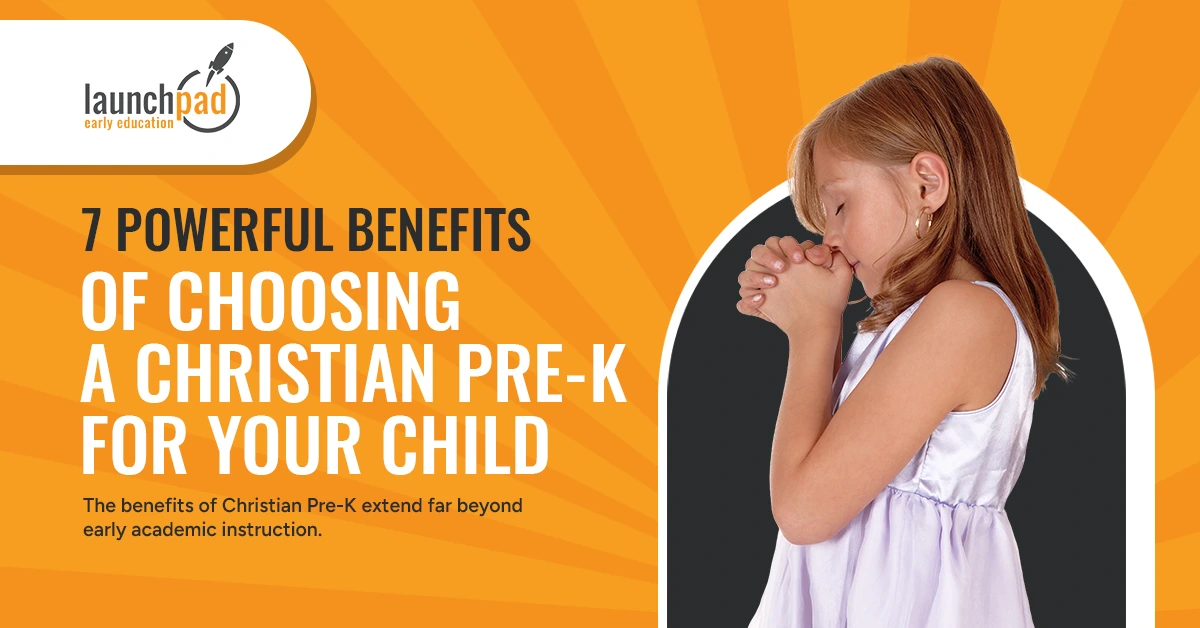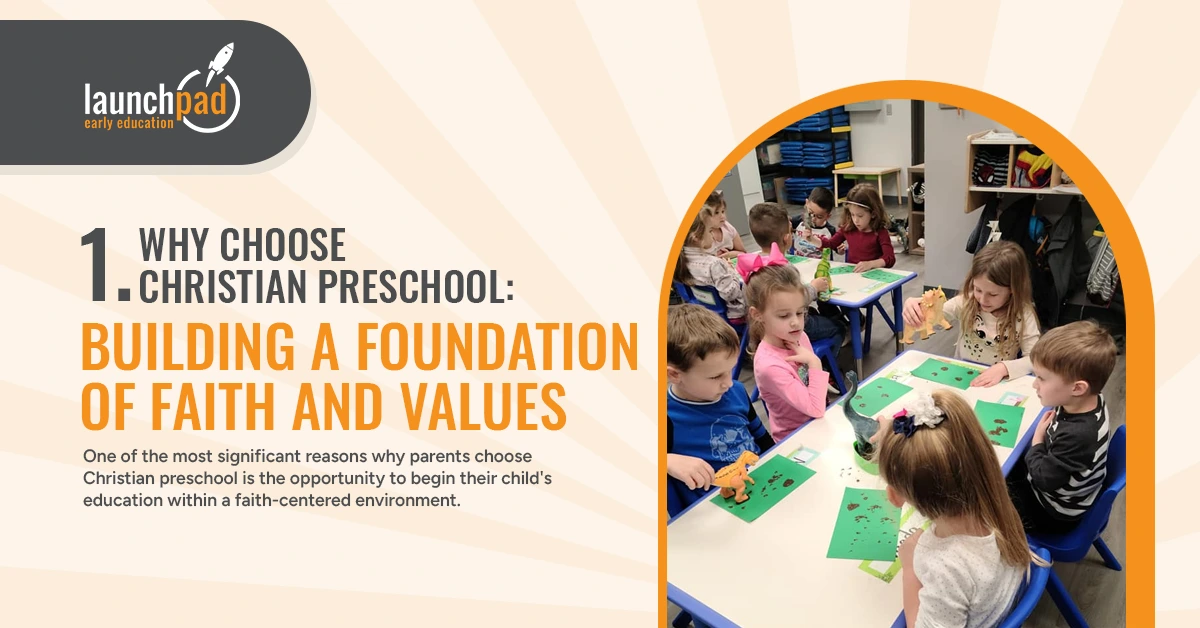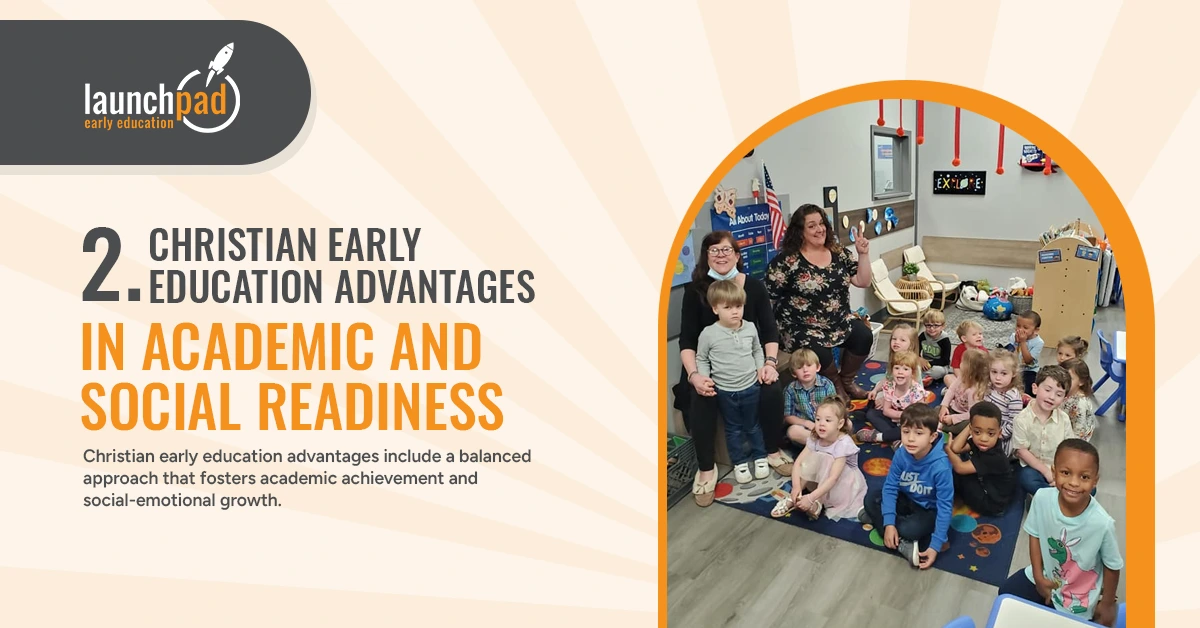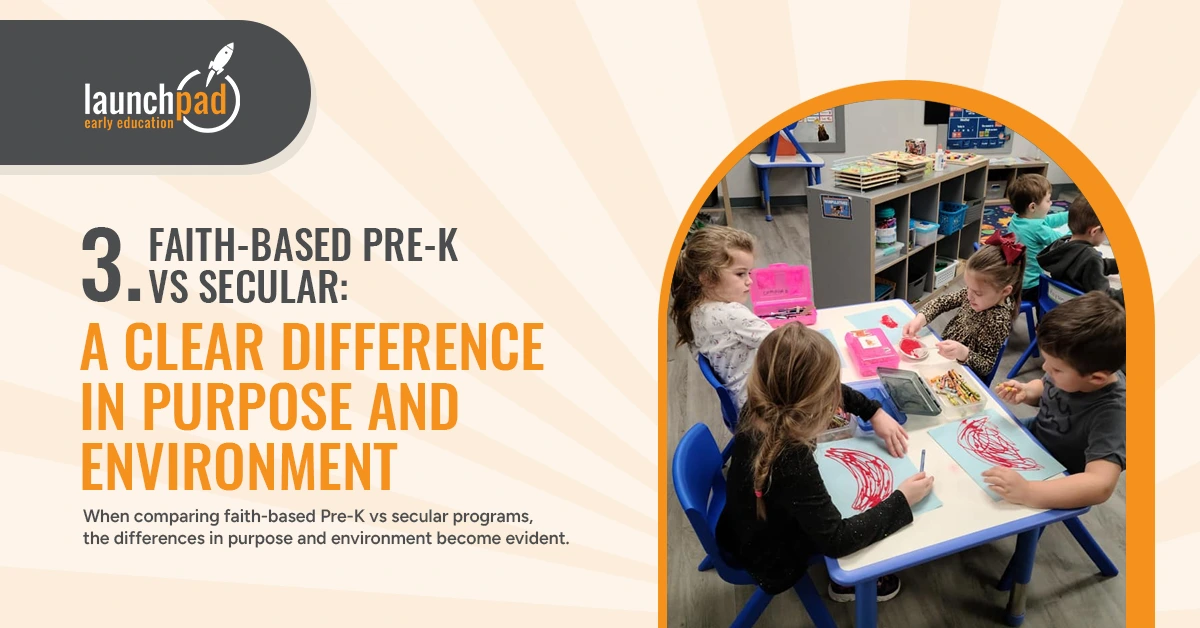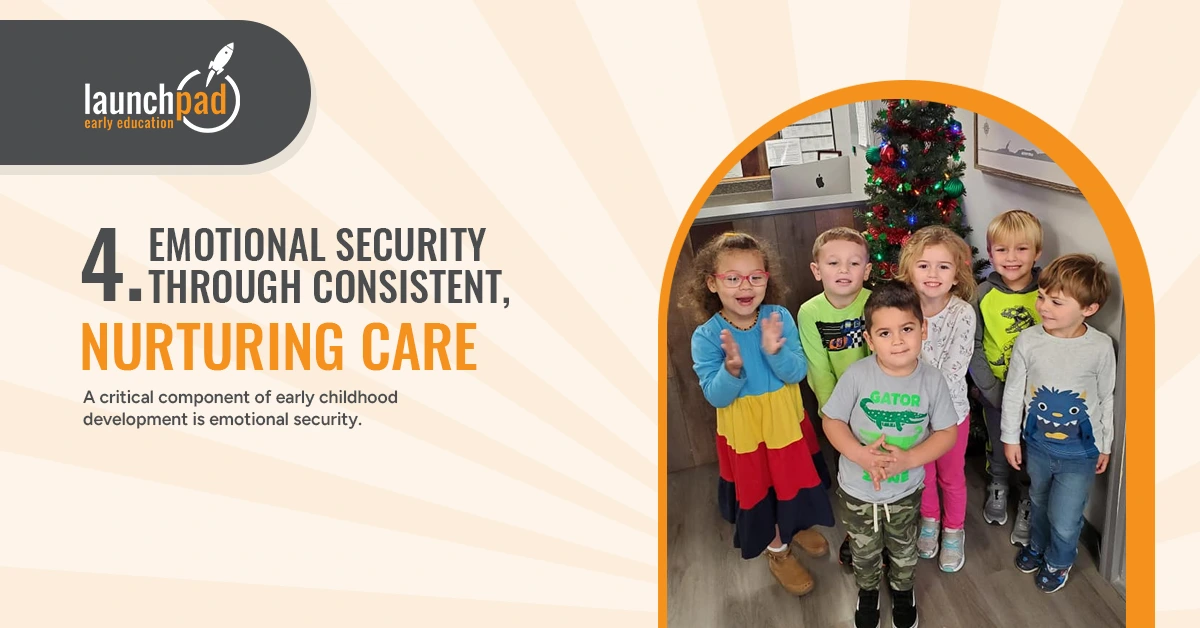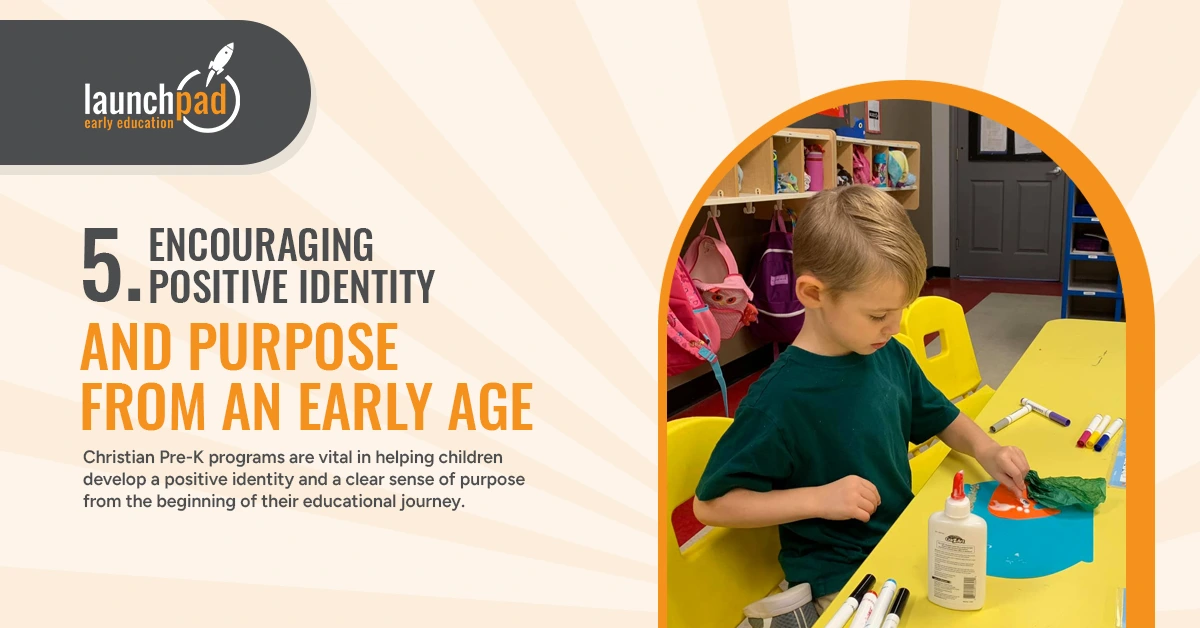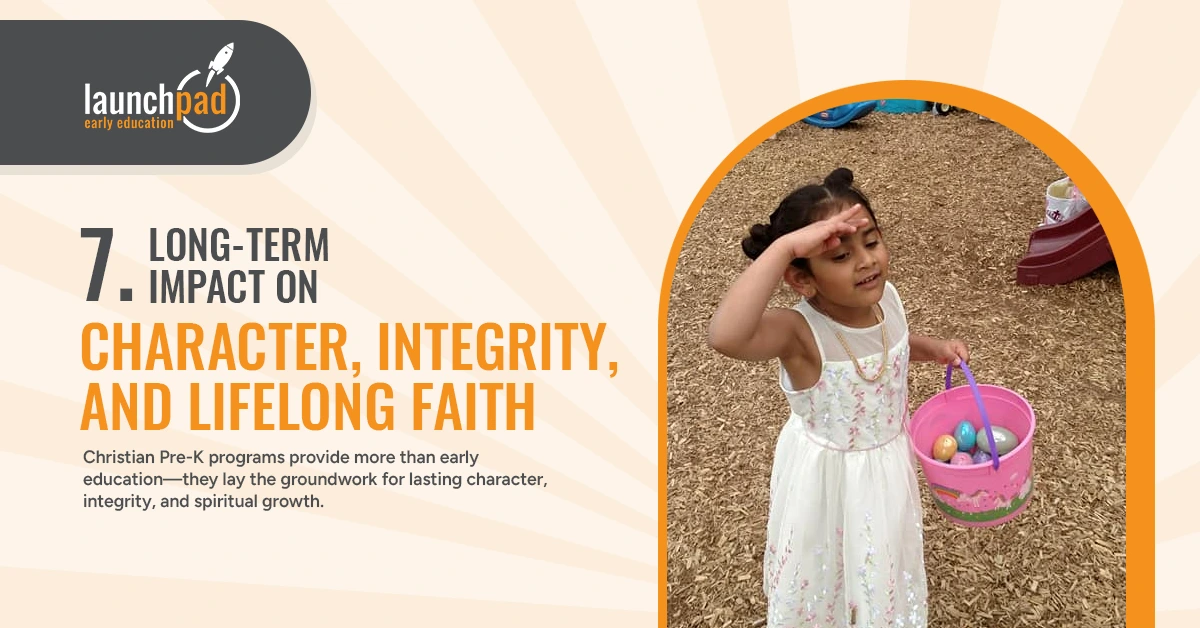The benefits of Christian Pre-K extend far beyond early academic instruction. Christian Pre-K programs nurture the whole child spiritually, emotionally, socially, and intellectually by integrating faith-based values with a strong educational foundation. These environments offer more than just school readiness; they cultivate character, instill purpose, and promote a sense of community rooted in Christian principles.
Parents who choose Christian Pre-K settings often find their children grow in compassion, resilience, and confidence. With daily opportunities for prayer, scripture, and guided moral development, children receive consistent messages reinforcing learning and faith. Christian Pre-K offers a compelling and meaningful foundation for families seeking an early education experience that aligns with their values while supporting holistic growth.
1. Why Choose Christian Preschool: Building a Foundation of Faith and Values
One of the most significant reasons why parents choose Christian preschool is the opportunity to begin their child’s education within a faith-centered environment. A Christian Pre-K does more than prepare students academically—it establishes a moral and spiritual framework that guides young learners throughout life.
In a Christian preschool, children are introduced to biblical truths, daily prayer, and the values of kindness, forgiveness, and respect. These lessons are not separate from the curriculum but are woven into daily interactions and learning experiences.
Core Foundations in Christian Preschool:
- Spiritual Development: Children learn about God’s love and presence through Bible stories, worship songs, and prayer.
- Moral Character Formation: Emphasis is placed on honesty, compassion, patience, and humility.
- Respectful Environment: Teachers model Christ-like behavior, creating a classroom where every child feels valued and safe.
By selecting a Christian Pre-K, families give their children a strong beginning that shapes intellect, heart, and spirit. This early exposure to faith and values supports developing confident, grounded individuals prepared to live with purpose and integrity.
2. Christian Early Education Advantages in Academic and Social Readiness
Christian early education advantages include a balanced approach that fosters academic achievement and social-emotional growth. These programs help children build essential skills while reinforcing values that support respectful and cooperative behavior.
Children are introduced to early literacy, numeracy, and problem-solving activities through structured, developmentally appropriate curricula. Lessons are presented in engaging formats that align with Christian teachings, helping children understand academic concepts and real-life applications through a moral lens.
Key Advantages of Christian Early Education:
- Academic Preparedness: Students develop foundational skills in reading, writing, math, and science through age-appropriate instruction.
- Social Responsibility: Children learn to interact with peers in ways that reflect Christian virtues such as kindness, patience, and forgiveness.
- Supportive Instruction: Teachers integrate faith-based lessons into the academic day, encouraging curiosity while guiding behavior with consistency and care.
In a Christian early education setting, students benefit from small class sizes and attentive instruction that prioritizes cognitive and character development. As a result, children enter kindergarten with the academic skills necessary for success and the emotional resilience and moral grounding to thrive in group settings.
3. Faith-Based Pre-K vs Secular: A Clear Difference in Purpose and Environment
When comparing faith-based Pre-K vs secular programs, the differences in purpose and environment become evident. While both aim to prepare children for school, faith-based Pre-K provides a Christ-centered foundation that shapes every aspect of a child’s development.
The curriculum in a faith-based Pre-K is integrated with biblical principles. Children engage in daily prayer, scripture reading, and character-building activities that align with Christian values. The classroom environment reflects a sense of purpose rooted in faith, where God sees each child as uniquely created and loved.
Key Differences in Faith-Based vs Secular Pre-K:
- Spiritual Emphasis: Faith-based programs include intentional spiritual formation, while secular programs focus solely on academic and social milestones.
- Moral Framework: Christian Pre-K offers consistent moral guidance from scripture, shaping children’s choices and behavior.
- Classroom Culture: The atmosphere in faith-based settings promotes compassion, humility, and grace, creating a nurturing environment for all learners.
Families who seek alignment between their values and their child’s education often choose faith-based Pre-K for its holistic approach. It fosters school readiness and spiritual awareness, helping children grow in knowledge and faith.
4. Emotional Security Through Consistent, Nurturing Care
A critical component of early childhood development is emotional security. Christian Pre-K programs are uniquely structured to provide children with consistent, nurturing care that fosters a sense of safety and belonging. This emotional stability supports healthy development and fully engages children in learning and social interactions.
In a Christian Pre-K environment, children are cared for by teachers who model Christ-like compassion and patience. Daily routines are predictable, creating a comforting rhythm that helps children feel confident and secure.
Elements That Promote Emotional Security:
- Trusting Relationships: Children form strong bonds with educators who are attentive, encouraging, and supportive.
- Predictable Structure: Consistent schedules and communicated expectations help children feel safe and in control.
- Christ-Centered Compassion: Teachers respond to emotions with understanding and kindness, reinforcing each child’s worth and dignity.
Christian Pre-K programs lay a strong foundation for personal growth by fostering emotional well-being through consistent and loving care. Children learn to express themselves, manage feelings, and trust their environment. This secure base allows them to build positive relationships, explore their interests, and develop confidence as they grow in character and capability.
5. Encouraging Positive Identity and Purpose from an Early Age
Christian Pre-K programs are vital in helping children develop a positive identity and a clear sense of purpose from the beginning of their educational journey. Rooted in biblical truths, these programs affirm that each child is uniquely created with value and intention. This message forms the basis for a strong, faith-centered self-concept.
Daily interactions, scripture-based lessons, and character development activities remind children of their identity as loved and purposeful individuals. Teachers encourage them to recognize their strengths, express their thoughts, and understand their role within a larger community.
How Christian Pre-K Encourages Identity and Purpose:
- Biblical Affirmation: Children are taught they are made in God’s image, reinforcing dignity and self-worth.
- Character Building: Lessons highlight personal responsibility, kindness, and service to others.
- Purposeful Learning: Activities are designed to connect academic concepts with values and meaningful applications.
Christian Pre-K helps children develop confidence, compassion, and understanding by nurturing a strong sense of self grounded in faith. This early affirmation of purpose supports lifelong emotional resilience, guiding children as they explore who they are and how they can positively impact the world around them.
6. Partnership Between Parents and Educators in a Shared Mission
A defining strength of Christian Pre-K programs is the intentional partnership between parents and educators. This collaboration is rooted in a shared vision to support each child’s spiritual, academic, and emotional development. Families and teachers create a unified foundation that enhances learning and reinforces core values by aligning efforts at home and in the classroom.
Christian Pre-K educators view parents as essential partners in the educational process. Regular communication, mutual respect, and shared goals contribute to a cohesive approach that benefits the child’s growth.
Key Aspects of the Parent-Educator Partnership:
- Consistent Communication: Families receive regular updates, progress reports, and insights, encouraging involvement and transparency.
- Faith Alignment: Parents and teachers work together to reinforce biblical principles, ensuring a consistent message across settings.
- Collaborative Support: Educators listen to parental input and provide guidance, fostering trust and a team-based approach to challenges and achievements.
This active partnership helps children feel supported, understood, and valued in all areas of their development. When parents and educators work in a Christ-centered environment, children receive consistent encouragement and direction, strengthening their confidence, behavior, and long-term success.
7. Long-Term Impact on Character, Integrity, and Lifelong Faith
Christian Pre-K programs provide more than early education—they lay the groundwork for lasting character, integrity, and spiritual growth. Introducing biblical values at a formative stage, these programs help shape children into individuals who uphold moral standards and live purposefully.
The early years are critical for character development. In Christian Pre-K, children learn to distinguish right from wrong through scripture-based lessons, guided behavior, and daily examples set by teachers. These consistent experiences help form habits of honesty, kindness, and responsibility.
Lasting Outcomes of a Christian Pre-K Education:
- Character Formation: Children develop strong ethical foundations that guide decision-making throughout life.
- Integrity in Action: Early lessons in respect, accountability, and truthfulness become deeply rooted behavioral patterns.
- Enduring Faith: Exposure to prayer, worship, and biblical teaching fosters a personal connection to faith that can continue into adulthood.
As children grow, the principles learned in a faith-based environment remain influential. Christian Pre-K supports academic preparation and the cultivation of a resilient moral compass. This long-term influence helps children navigate future challenges with conviction, empathy, and a clear understanding of their identity in Christ.
Conclusion
Choosing a Christian Pre-K is a meaningful decision that nurtures every aspect of a child’s development—spiritually, academically, socially, and emotionally. From instilling faith-based values to promoting school readiness and building lifelong character, Christian early education provides a strong, purpose-driven foundation. These programs prepare children for future success and shape who they become as individuals, guided by integrity, compassion, and a clear sense of purpose. For families seeking an environment that reflects their values while supporting the whole child, Christian Pre-K offers unmatched advantages that continue to impact children long after they leave the classroom.
Discover the difference a Christ-centered early education can make. Find your nearest LaunchPad Early Education location at https://launchpad-ee.com/find-us/ or call (615) 809 2211 to learn more.


